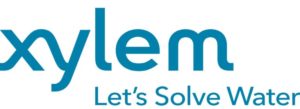Weak Dollar Impacts Sales and Earnings – New Orders Outpace Sales
Pfeiffer Vacuum, a leading manufacturer of high-quality vacuum pumps, vacuum gauges and mass spectrometers, as well as complete vacuum systems, announces its results for the 1st half of 2003.
Highlights at a glance:
| H1 / 2003 | H1 / 2002 | Change | |
| Sales | € 66.6 million | € 73.5 million | -9.3% |
| Operating profit (EBIT) | € 4.7 million | € 8.7 million | -45.5% |
| After-tax income | € 3.6 million | € 5.6 million | -35.5% | Earnings per share | € 0.41 | € 0.64 | -35.9% |
| New orders | € 69.5 million | € 74.8 million | -7.1% |
| Orders on hand | € 23.9 million | € 27.9 million | -14.3% |
| Q2 / 2003 | Q2 / 2002 | Change | |
| Sales | € 31.5 million | € 36.5 million | -13.7% |
| Operating profit (EBIT) | € 1.3 million | € 4.1 million | -67.5% |
| After-tax income | € 0.9 million | € 2.7 million | -66.9% | New orders | € 35.2 million | € 39.4 million | -10.7% |
Sales and earnings were impacted by two factors that are beyond the company’s control:
- A law passed by the German government in April 2003 that eliminated the tax
preference on dividend distributions effective immediately.
- The persistent weakness of the dollar.
This had the following ramifications for Pfeiffer Vacuum during the period under
review:
- The tax rate rose to 47 percent for the 1st half of 2003 (previous year: 39 percent).
- Sales in the United States declined only moderately from US$ 16.7 million
(1st half of 2002) to US$ 16.1 million (1st half of 2003).
Due to the weakness of the dollar, this marginal decline in sales equated to a minus of € 3.3 in euros after consolidation. In other words: One half of the decline in sales was attributable to the present weakness of the dollar, with the remainder of the decline in sales stemming from the sustained weakness of the economy.
Sales in Germany went from € 19.7 million (1st half of 2002) to €17.9 million (1st half of 2003). In the other European countries, sales declined by 5.6 percent from 24.5 million (1st half of 2002) to € 23.1 million (1st half of 2003). Sales in Japan went against the trend, rising by 31.7 percent from € 4.6 million to €6.0 million. Exports to Asia and the rest of the world now account for 16.6 percent of total sales, as opposed to 14.6 percent for the 1st half of 2002. The company’s close-knit network of service support points, in particular, is paying off here.
The effects of the weak dollar coupled with lower sales resulted in a gross profit of € 28.3 million and a gross margin of 42.4 percent of sales. Had the same foreign exchange conditions prevailed as last year, and without the effect of flexible work time models, the gross margin would have been roughly the same as the previous year’s level.
Selling, general and administrative expenses were reduced by 2.4 percent. At 7.2 percent of sales, the company continues to invest heavily in the development of new products. On balance, this results in an operating profit (EBIT) of € 4.7 million, or 7.1 percent of sales. Thanks to talented foreign exchange management and interest income, the company succeeded in generating before-tax income of € 6.8 million, or 10.2 percent of sales.
The size of the corporate group’s workforce declined by 5.6 percent from 824 to 778 people. Flexible work time models enabled capacities to be adjusted during the first half of 2003, while still allowing skilled labour to be retained. Under the flexible work time models, employees work fewer hours but receive the same pay. This naturally impacts the current quarterly numbers. However, these paid but unworked hours will later be available at no cost when the economy revives.
The level of new orders reflects a positive trend of development: The book-to-bill ratio was positive in both the 2nd quarter of 2003 as well as for the entire first half of the year; i.e. the value of new orders was higher than sales. The book-to-bill ratio for the 2nd quarter of 2003 was 1.12.
The company’s balance sheet continues to be rock solid: During the 1st half of 2003, trade accounts receivable declined from € 21,.9 million to € 18.0 million, with inventories remaining constant at € 22.4. Operating activities provided € 12.5 million in net cash flow for the 1st half of 2003. A long-term loan in the amount of € 9 million for development projects was repaid early, which means that the company is now totally free of bank debt. Dividends totalling €4.9 million were paid in June 2003. Cash and cash equivalents now total € 68.0 million ( €72.3 million on December 31, 2002).
Chief Executive Officer Wolfgang Dondorf: “We are not satisfied with this fiscal year thus far. With only few exceptions, economic development continues to be sluggish in all regions. The upswing that our politicians repeatedly insist will soon be coming has still not materialized, and we do not expect to see it until the beginning of 2004 at the earliest. The persistent weakness of the dollar is impacting our consolidated earnings. We are using new products and increased selling activities to strengthen our market position. In spite of a moderate rise in demand and new orders in recent weeks, it would appear that the sales target we had set for 2003 in late 2002 will not be able to be achieved. As things stand today, we anticipate sales of from ¨€ 140 to 145 million at year-end.“
Source: Pfeiffer Vacuum GmbH





